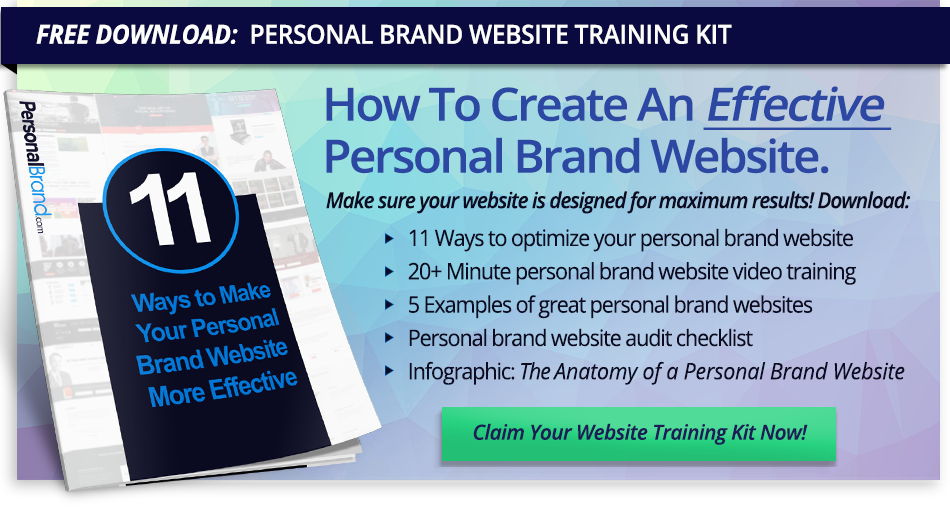What does it mean to be credible? To enlist trust from the people encountering your words, art, products and services out in the digital sphere?
Miriam-Webster says that to be credible is to able to be believed; convincing; capable of persuading people that something will happen or be successful.
It lists such synonyms as acceptable, trustworthy, reliable, dependable, sure, good, and valid.
At a time when consumers are more skeptical than ever of what they read online (hello fake news), how can an entrepreneur, someone just starting to build their personal brand, convince prospects and digital followers that he is credible?
There is another reality at play, on the other side of that coin. While we live in a skeptical world, this world is also still highly trusting and porous with credibility boundaries. With some powerful, consistent messaging, branding and marketing strategies, credibility can be developed and elevated in your business, accelerating the impact of your business strategies by its sheer effective force and potent flavor.
I’ll share with you how to create that potent flavor of credibility for maximum impact and connection with your prospects and clients.
You may have the following questions arising around credibility and how to achieve it:
- Is it a title that matters? Are CEOs and owners immediately trustworthy?
- Is it job experience that matters? Does a resumé portend reliability?
- Is it a referral from a colleague or network connection? Does a personal recommendation ensure dependability?
- Is it breadth and depth of content creation? Does a plethora of published content promise persuasion?
All of these factors will help an entrepreneur to build their personal brand. If you want to get started and need to do it quickly, you just need these 6 hacks. Stat.
1. Optimize Your SEO
A reliable source of truth and a powerful referral that your personal brand needs to have on its side is Google. A recent study revealed that online search engines are among the most trusted forms of media for informed publics looking for information.
What that means for your personal brand, is that when a prospective customer searches online for information about your subject matter of expertise or your services, if you rank high on Google’s search engine results page (SERP), you will immediately gain more credibility.
People know that the best, most viewed, and most trusted pages appear on the top of the SERP, which is why the number one position on Google SERPs get 33 percent of all traffic, and which is why when prospects are looking for information via search engines, you want a top ranking.
How to Boost Your SERP Position:
Search engine optimization (SEO) is an art and a science, not to mention a marketing specialty that some firms choose to specialize in exclusively. That’s our way of saying that there is significant guidance worth your research on this topic alone. From a high-level perspective, however, know that you can improve your SERP rankings by:
- Utilizing keywords in your personal brand website copy, including within H1 and H2 tags.
- Regularly adding content to your personal brand website that focuses on keywords and phrases. Maintaining a regular blog can help.
- Obtaining backlinks. Obtaining links from other websites to your personal brand website will help boost your rankings by giving your website credibility and authority. Ask satisfied clients to link to your website where relevant, such as on a “partner” or “trusted resource” page.
- Obtaining backlinks from trusted domains. Google recognizes reputable media companies and .edu domains as trusted authorities. That means if a media publication or an educational institution links to your website, it’s like a cheat code for boosting your rankings—and all the more reason to implement a public relations and earned media strategy.
With some digital marketing savvy, you can make Google and other search engines your most reliable allies in the fight for online credibility.
2. Showcase Your Work
If you’re a top expert in an industry, you should be able to point to happy clients and a beautiful portfolio. While utilizing social proof is a marketing strategy that you will need to build upon over time, it is one that can help you immediately boost your digital credibility. Consider adding the following types of content to your personal brand website to demonstrate your expertise:
Share Client Testimonials
Ninety-two percent of people read testimonials when considering a purchase. 92% of people read testimonials when considering a purchase. Client success stories are not something to tack onto your content marketing. They’re a key centerpiece.
Also, business-to-business brands with referrals report a 70 percent higher conversion rate and a 69 percent faster close time on sales. As you start building your network of raving fans, ask your clients for a testimonial for your website. Your most loyal customers will be happy to share their experience with your services.
Read more about the power of testimonials.
Leverage Client Case Studies
Don’t just tell your prospects what you do. Show them what you’ve done.
According to the experts at HubSpot, case studies help convert and accelerate the most leads. For any bottom-of-the-funnel sales prospects who are looking to decide on a new strategic partner, the ability to share a case study that shows how you creatively solved a similar problem to the one they face for a similar brand or person is incredibly impactful.
Case studies don’t need to be lengthy or formal. They don’t even have to be in written format.
Video case studies, especially those that include direct feedback from your clients, can add significant authenticity and credibility to your success story.
An explanation from you about your services can be persuasive, but proof-positive results from raving fans are priceless. Proudly showcase your best work and prove that you are a partner worth trusting.
3. Be Transparent
You will lose credibility with prospects if they can’t find the information they want about your business, offers, or services on your website. In particular, consider being transparent about the following:
Pricing. If a prospect can’t find your pricing, he may assume it’s astronomical, or at least out of his price range. Even if you need to provide ranges or baseline rates for your services, by including pricing information, you will prove that you are an honest and upfront person and will earn trust among prospects.
Who Your Target Customer Is—and Is Not. If you only work with specific customers, then include such qualifiers on your website. There is no need to waste your time or your prospects time while you figure out if you two are a match for one another.
For example, if you are an executive-level coach, but have found your approach to coaching is not a good fit for someone who cannot commit to at least five hours a month of active learning time, then explain that requirement upfront.
Your Availability: It’s admirable to only work with a small number of customers at a time so that you can give them all the individualized attention they deserve—but let prospects know about your time constraints.
If they need short-term help, and you are committed to other customers, being honest about your availability will allow them to decide if they want to pursue a conversation with you at this time, or if they can wait until they can get on your calendar.
Honesty breeds credibility.
Anyone considering enlisting your services will value seeing that you handle every aspect of your business management from a place of clarity and integrity.
4. Provide Your Credentials
Degrees and credentials still carry weight. For example, if you are an inbound marketing consultant, let prospects know you are Google AdWords Certified. If you are an executive coach, share that you are a certified Marshall Goldsmith Stakeholder Centered Coach. No matter your industry, demonstrate the highest level of training you have accomplished.
If your program issued you a logo or icon, include it on your website in a relevant position, such as your About Me page to reinforce your credibility and accomplishments.
Similarly, don’t be shy about sharing any third-party awards or media recognition you have received.
All forms of third-party recognition help to build the story around the skills and experience you have developed that have helped to make you an expert.
Awards, certifications, and degrees all demonstrate knowledge and proficiency. Display all your accomplishments proudly on your personal brand website. After all, you earned them.
5. Produce Free Educational Content
You don’t want to give away all your trade secrets (your customers should pay for the good stuff), but teasing prospects with educational content that is longer than a blog further helps to showcase your expertise. Anyone can write a 400-word blog, but only an expert can publish a long-form white paper or an eBook.
Like SEO, content marketing is a specialized marketing strategy worth your exploration.
If you’re considering leveraging educational content to help your brand build credibility, keep the following high-level concepts in mind:
Gate Your Content
To ensure you’re not giving away your best guidance and how-tos for free, require a prospect to provide his name and email address to access a white paper or eBook download. Then, add him to your marketing funnel to help grow your email marketing list (more on that here).
Keep it Professional
Any educational piece should look highly professional. Take the time to have it proofread and designed by experts. Especially if a prospect is giving up her name and email address to download a white paper, she’ll be expecting something more professional than a plain word document written in the default Calibri font.
Promote Your Content Everywhere.
Once you’ve gone through the effort to produce a long-form content piece, promote it as part of your lead generation strategy. Send it to your email list, promote it on social, and add a graphic to your homepage. If budget allows, you can even advertise with paid ads on Google AdWords or social media.
Thought leader content is a powerful tool to showcase your expertise and fill your prospecting funnel with people looking for the types of knowledge you maintain so that you can target them as sales prospects. Just ensure you are using any long-form pieces as part of your inbound marketing strategy, and not giving away insights or tools that you typically only share with paying customers.
6. Walk the Talk
Do more than claim your expert status. Prove it.
Every aspect of your online persona should prove that you follow your own best advice. If you claim to be a social media expert, then you better have a strong network of social followers and a regular cadence of valuable insights. If you are a voice coach, then any videos, vlogs, or podcasts that you share on your website or social media should be professionally produced and recorded.
They should not sound like you recorded them from a busy Starbucks with a poor Wi-Fi connection.
Your personal brand is your whole package. Everywhere your name can be found online should reference content that portrays the brand you want your prospects and customers to know that you embody. If you’re just getting started and think you may need an image clean up, Google yourself, and then read our reputation management advice here.
Final Words of Advice
If you are leading your personal brand business with integrity (and we know that you are), then it should be easy to implement these tactics to prove your credibility and industry expertise.
With a credible personal brand solidly positioned in the digital space, you’ll be able to earn more website views, nurture more prospects, and sign more sales deals. Then you’ll be well on your way to taking your personal brand from six to seven figures.
We hope you enjoyed this article, thanks for reading! Also, follow us on Facebook, and Twitter for updates every time we publish!






